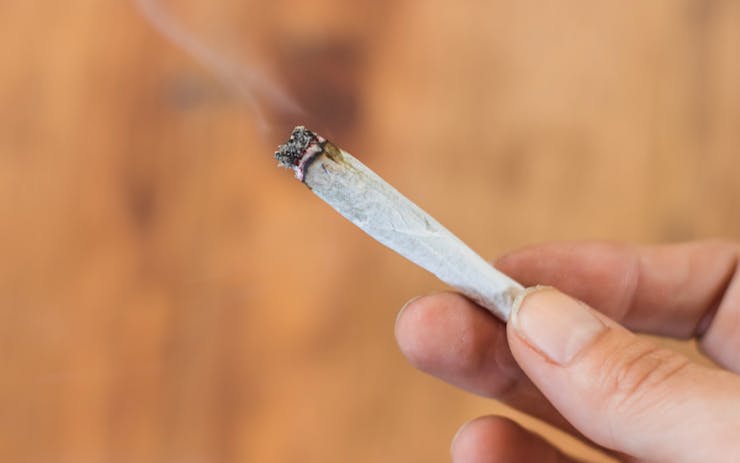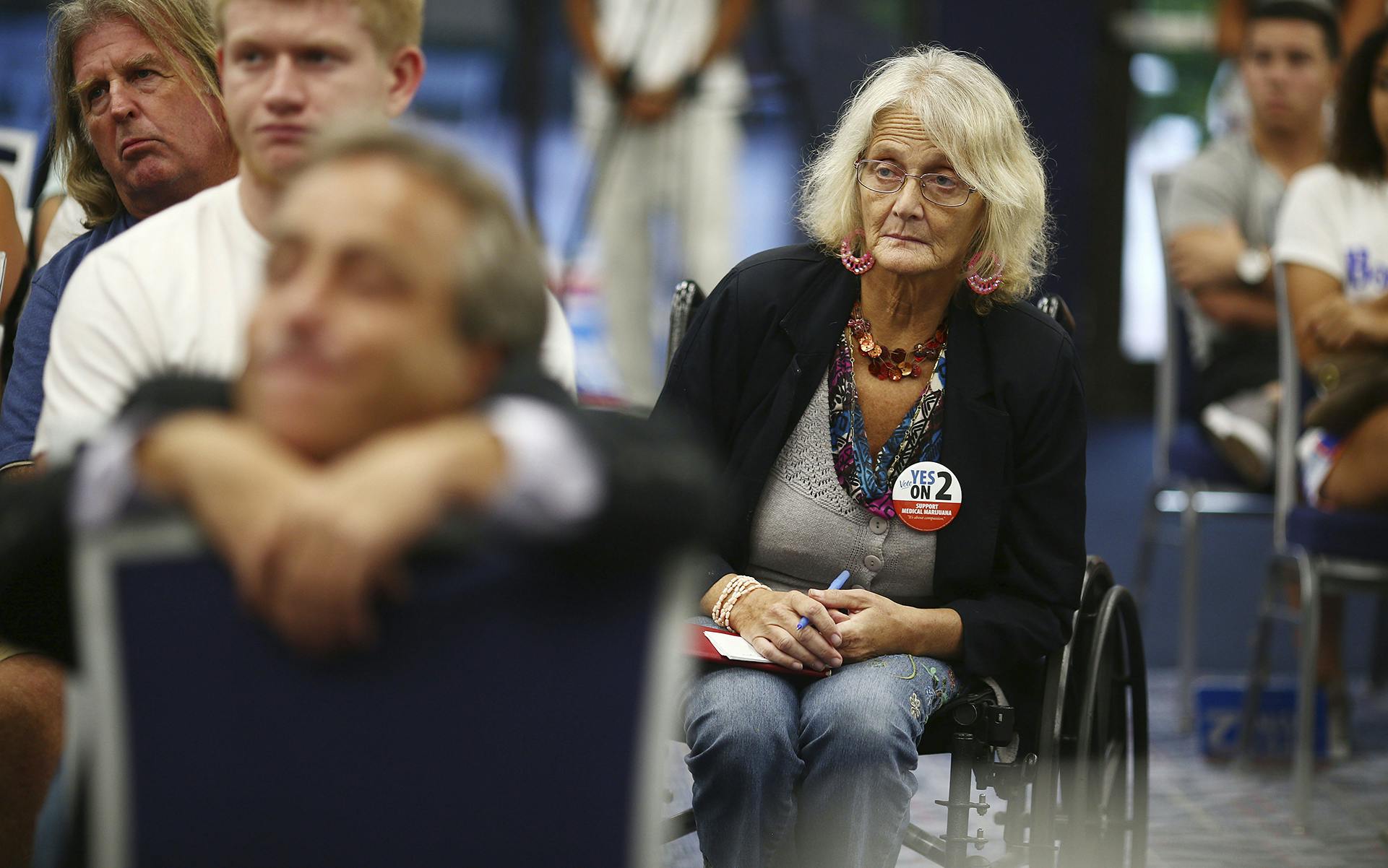Florida attorney John Morgan is taking aim at the state Legislature’s recently imposed ban on smokeable forms of medical cannabis. On Thursday morning, Morgan flew to the state capital to file a lawsuit seeking to overturn the ban. The well-known personal injury lawyer was a chief backer of Amendment 2, which voters passed overwhelmingly in November to legalize medical cannabis.
“Just landed in Tally,” he tweeted at 9:08 a.m. local time. “The cavalry has arrived.”
Just landed in Tally. The cavalry has arrived.
📺 Watch my #NoSmokeIsAJoke press conference LIVE on https://t.co/9knjlu9uNx
— John Morgan (@JohnMorganESQ) July 6, 2017
The crux of the suit’s argument is this: Amendment 2 intended to prohibit smoking medical cannabis in public but allow smoking in private. When the Legislature recently overhauled the law, Morgan argues, it ignored that distinction and said “marijuana in a form for smoking” doesn’t qualify for medical use at all. Rules under the new state law allow only edibles, oils, and vapor products.
Morgan contends that the change interfered with patients’ constitutional right to treatment.
“By redefining the constitutionally defined term ‘medical use’ to exclude smoking, the Legislature substitutes its medical judgment for that of ‘a licensed Florida physician’ and is in direct conflict with the specifically articulated Constitutional process,” the suit says. It asks the court to scrap the smokeables ban and prevent state officials from enforcing it.
“The people of Florida knew exactly what they were voting on,” Morgan told reporters at a Thursday press conference. “The fact that we’re here today is really unnecessary.”
A number of states with medical marijuana laws, such as Minnesota and Pennsylvania, have included bans on cannabis flowers. Internationally, some countries, including Australia and most recently Greece, also prohibit smokeables.
The lawsuit questions the merit of those bans, noting that “inhalation is a medically effective and efficient way to deliver Tetrahydrocannabinol (THC), and other cannabinoids, to the bloodstream.” The suit also observes that a 2012 study in the Journal of the American Medical Association found that smoking cannabis did “not impair lung function, based on doses inhaled by the majority of users, as compared to non-smokers and tobacco smokers. In fact, marijuana smoking was shown to increase lung capacity.”
Moreover, the suit says, “despite decades of marijuana being used for smoking in the United States, there have been no reported medical cases of lung cancer or emphysema attributed to marijuana.”
“Do we give a rat’s ass if a person (dying) from ALS smokes instead of vapes? I don’t.”
Critics of combustion, however, say that smoking is never the healthiest option. Smart Approaches to Marijuana (SAM), a nonprofit advocacy group that opposes legalization, called the lawsuit “nothing more than a smokescreen designed to bypass the FDA and open the doors to a new for-profit, retail commercial marijuana industry in Florida.”
“There’s a reason why every single major medical association opposes the use of the raw, smoked form of marijuana as medicine: smoke is not a reliable delivery system, it’s impossible to measure dosage, and it contains hundreds of other chemical compounds that may do more harm than good,” SAM President Kevin Sabet said in a statement, according to the Miami Herald.
Morgan pushed back on those arguments in comments to reporters Thursday. For patients with severe or terminal medical conditions, he said, any irritation caused by inhaling cannabis smoke would be minor relative to the relief it provides.
“Do we give a rat’s ass if a person [dying] from ALS smokes instead of vapes? I don’t,” Morgan said, according to the Orlando Sentinel.
The lawsuit was filed in Florida’s Second Judicial Circuit Court, in Leon County, by Morgan as well as two litigators from the high-profile law firm Boies Schiller Flexner LLP, Jon L. Mills and Karen C. Dyer. Currently no patients are named as plaintiffs in the suit, and the complaint as filed doesn’t explicitly say why the nonprofit organization People United for Medical Marijuana (PUMM), which Morgan chairs, has standing to bring the challenge.
Reached Thursday afternoon, attorney Mills said that “interest-type organizations” such as PUMM generally have a low standard to meet in establishing standing in requests for declaratory relief. But he added that the team may eventually involve individuals affected by the ban.
“We’ll likely add some patients and others who would be considered to have standing in this situation,” he told Leafly.
Morgan, who has acknowledged that he’s considering a run for Florida governor in 2018, could eventually see a monetary benefit from nixing the smokeables ban. The lawyer told the Miami Herald in May that he’s considering investing as much as $100 million in the fledgling industry. He spent nearly $7 million to help pass Amendment 2.
“I have learned a great deal about the miracles of marijuana over the last five years,” he wrote in an email to the Herald. “What better person than me to be involved?”
A copy of the full complaint is included below:
Lawsuit: People United for Medical Marijuana v. Florida — Smokeable Cannabis by Ben Adlin on Scribd






